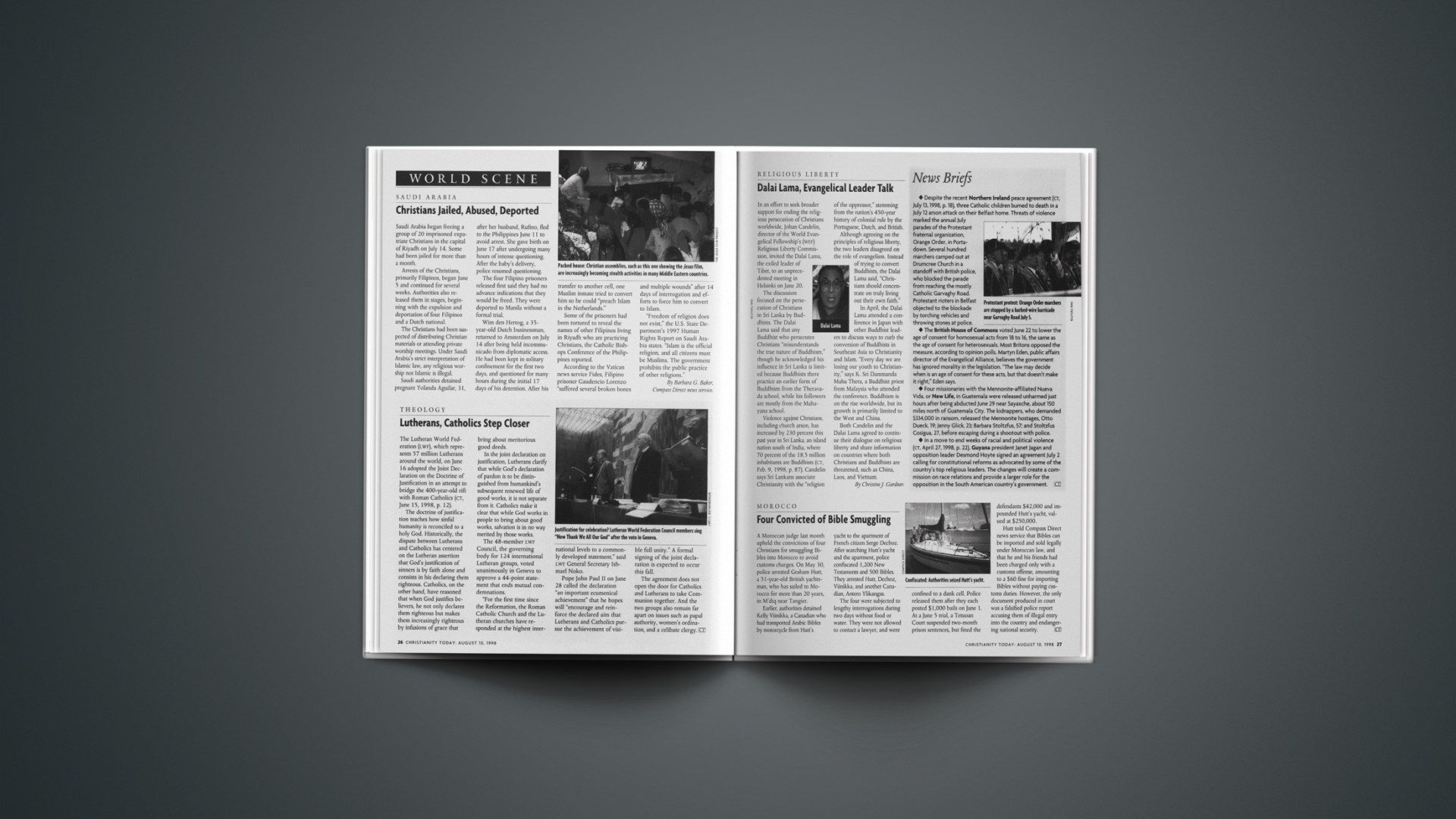Saudi Arabia began freeing a group of 20 imprisoned expatriate Christians in the capital of Riyadh on July 14. Some had been jailed for more than a month.
Arrests of the Christians, primarily Filipinos, began June 5 and continued for several weeks. Authorities also released them in stages, beginning with the expulsion and deportation of four Filipinos and a Dutch national.
The Christians had been suspected of distributing Christian materials or attending private worship meetings. Under Saudi Arabia’s strict interpretation of Islamic law, any religious worship not Islamic is illegal.
Saudi authorities detained pregnant Yolanda Aguilar, 31, after her husband, Rufino, fled to the Philippines June 11 to avoid arrest. She gave birth on June 17 after undergoing many hours of intense questioning. After the baby’s delivery, police resumed questioning.
The four Filipino prisoners released first said they had no advance indications that they would be freed. They were deported to Manila without a formal trial.
Wim den Hertog, a 35-year-old Dutch businessman, returned to Amsterdam on July 14 after being held incommunicado from diplomatic access. He had been kept in solitary confinement for the first two days, and questioned for many hours during the initial 17 days of his detention. After his transfer to another cell, one Muslim inmate tried to convert him so he could “preach Islam in the Netherlands.”
Some of the prisoners had been tortured to reveal the names of other Filipinos living in Riyadh who are practicing Christians, the Catholic Bishops Conference of the Philippines reported.
According to the Vatican news service Fides, Filipino prisoner Gaudencio Lorenzo “suffered several broken bones and multiple wounds” after 14 days of interrogation and efforts to force him to convert to Islam.
“Freedom of religion does not exist,” the U.S. State Department’s 1997 Human Rights Report on Saudi Arabia states. “Islam is the official religion, and all citizens must be Muslims. The government prohibits the public practice of other religions.”
Copyright © 1998 Christianity Today. Click for reprint information.










